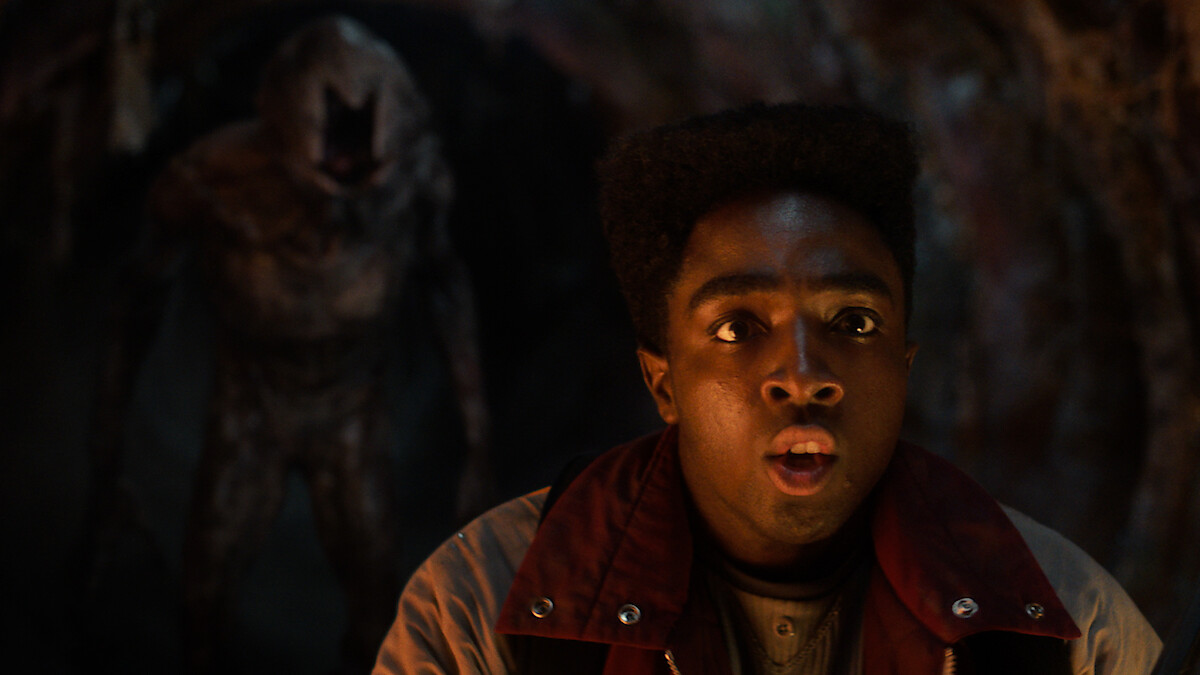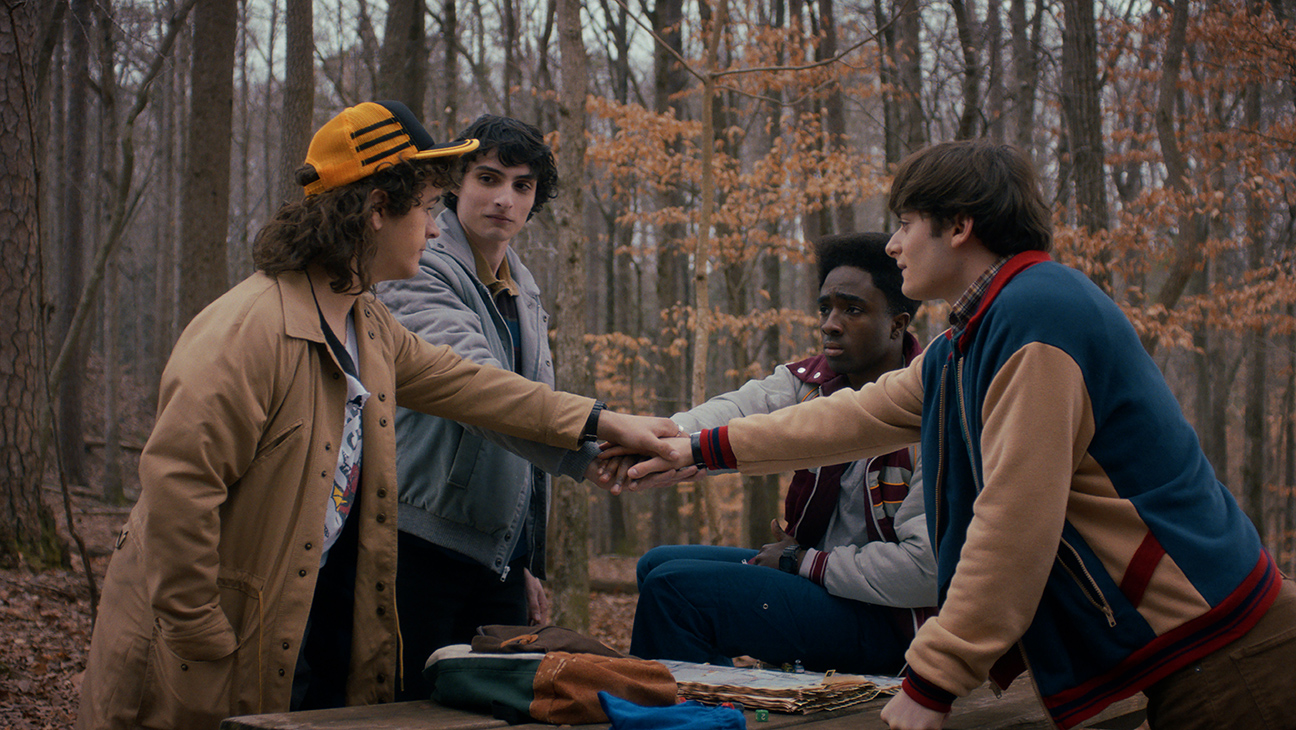They’re Playing You For Fools. Again.
And so it begins. The slow, agonizing drip of marketing sludge that the Netflix machine laughably calls a “rollout.” You see the headlines, don’t you? “10 Things The Duffer Brothers Want You to Know.” “Get Hyped with One Last Fiery Trailer.” It’s a carefully orchestrated symphony of manipulation, designed to whip you into a frenzy for a product that won’t even be delivered until late 2025, and you’re all eating it up with a spoon like it’s the last pudding cup in the cafeteria. Wake up. This isn’t a celebration of a story’s conclusion. This is a hostage situation. It’s a calculated, drawn-out affair designed for one purpose and one purpose only: to keep your subscription active and to sell you Funko Pops while they bleed their golden goose dry for every last drop.
Because you have to ask yourself, why the agonizing wait? Really think about it. The kids are practically collecting social security, the plot threads have been dangling for years, and the momentum from season four, whatever you thought of it, is colder than a Demogorgon’s embrace. But they’ll tell you it’s for the “art.” They’ll say they need time to get the ending “just right.” What a load of crap. This is a business decision, a cold entry on a spreadsheet in a Los Gatos boardroom, calculated to land at the perfect intersection of quarterly earnings reports and holiday spending frenzies. It’s not about narrative integrity; it’s about maximizing market impact. End of story.
The Illusion of an Ending
This is not the end. Let’s get that straight right now. Calling this the “Final Season” is the biggest lie they’ve told since they claimed they were cracking down on password sharing for our own good. They’re just closing one chapter to open a dozen more. But the media, the paid-off shills and the access journalists, they’ll play along with the charade because it gets them clicks. They’ll dutifully report on the “10 Things” the creators “want you to know,” as if it’s some sacred text handed down from on high. It’s a press kit, you idiots. It’s a list of pre-approved talking points to control the narrative before the product even ships, ensuring nobody asks the hard questions. Questions like, how much creative control do the Duffer Brothers even have anymore? Or are they just the well-paid faces of a corporate committee tasked with landing this billion-dollar plane without upsetting any potential merchandising partners?
And don’t even get me started on the trailer culture that this kind of hype-cycle feeds. They’ll give you a “final” trailer, a two-and-a-half-minute movie that spoils every major set piece and character beat, and you’ll all dissect it frame by frame, generating millions in free advertising for the very corporation that is holding your beloved characters hostage. You’re doing their work for them. It’s brilliant, in a deeply cynical, soul-crushing way. They’ve trained an entire generation to crave the marketing more than the actual art, to prefer the spoiler-filled trailer to the genuine surprise of discovery. They’ve successfully turned a story into a line item, an experience into a pre-packaged consumer good. You’re not an audience; you’re a target demographic.
The Franchise Machine Grinds On
But the real con, the masterstroke of this entire grift, is the lie of finality. This isn’t the grand conclusion to a beloved saga. It’s the launch party for the Stranger Things Cinematic Universe. You think Netflix, a company that just spent hundreds of millions on this season, is just going to let this IP die? Get real. They’re going to strip it for parts like a stolen car in a chop shop. They’ve already announced a stage play and an animated series. How long until we get the gritty prequel about Hopper’s time in Vietnam? Or the sitcom about Dustin and Suzie’s long-distance relationship? Maybe a true-crime docuseries about the Hawkins Lab experiments? It will never end. Because in the world of streaming, nothing is allowed to have a dignified death. Every ending is just a backdoor pilot for another spin-off, another diluted, focus-grouped piece of content designed to fill a slot in the release calendar. It’s a creative plague.
This whole spectacle is a monument to the death of risk in mainstream entertainment. Remember when this show felt fresh? When it was a weird little homage to the 80s that came out of nowhere? That feeling is gone forever, replaced by the crushing weight of expectation and the suffocating embrace of a multi-billion-dollar corporation that cannot, under any circumstances, allow its prize asset to fail or even just to simply… end. So the story will be sanded down, its edges rounded off to make it as palatable and inoffensive as possible. The ending won’t be what the story demands; it will be what the algorithm and the test audiences demand. A “satisfying” conclusion that ties up every loose end in a neat little bow, offends no one, and leaves the door wide open for Stranger Things: The New Class in a few years.
Your Nostalgia is a Weapon
Because at the end of the day, that’s what they’re selling you. Not a story. They are selling you your own childhood, repackaged and marked up. They are weaponizing your nostalgia, your affection for these characters, and using it to keep you tethered to their platform. The long wait, the drip-feed of information, the manufactured hype—it’s all part of the game. They’re banking on the fact that you’ve invested so much time and emotion into this world that you can’t possibly walk away now, even if you suspect the magic is long gone. And they’re probably right. So by all means, get hyped. Circle November 26, 2025, on your calendar. Prepare to spend the holidays in Hawkins. Just don’t pretend you’re doing it for the art. You’re just another consumer, dutifully lining up for the next dose of corporate-approved nostalgia. And the machine thanks you for your service.


